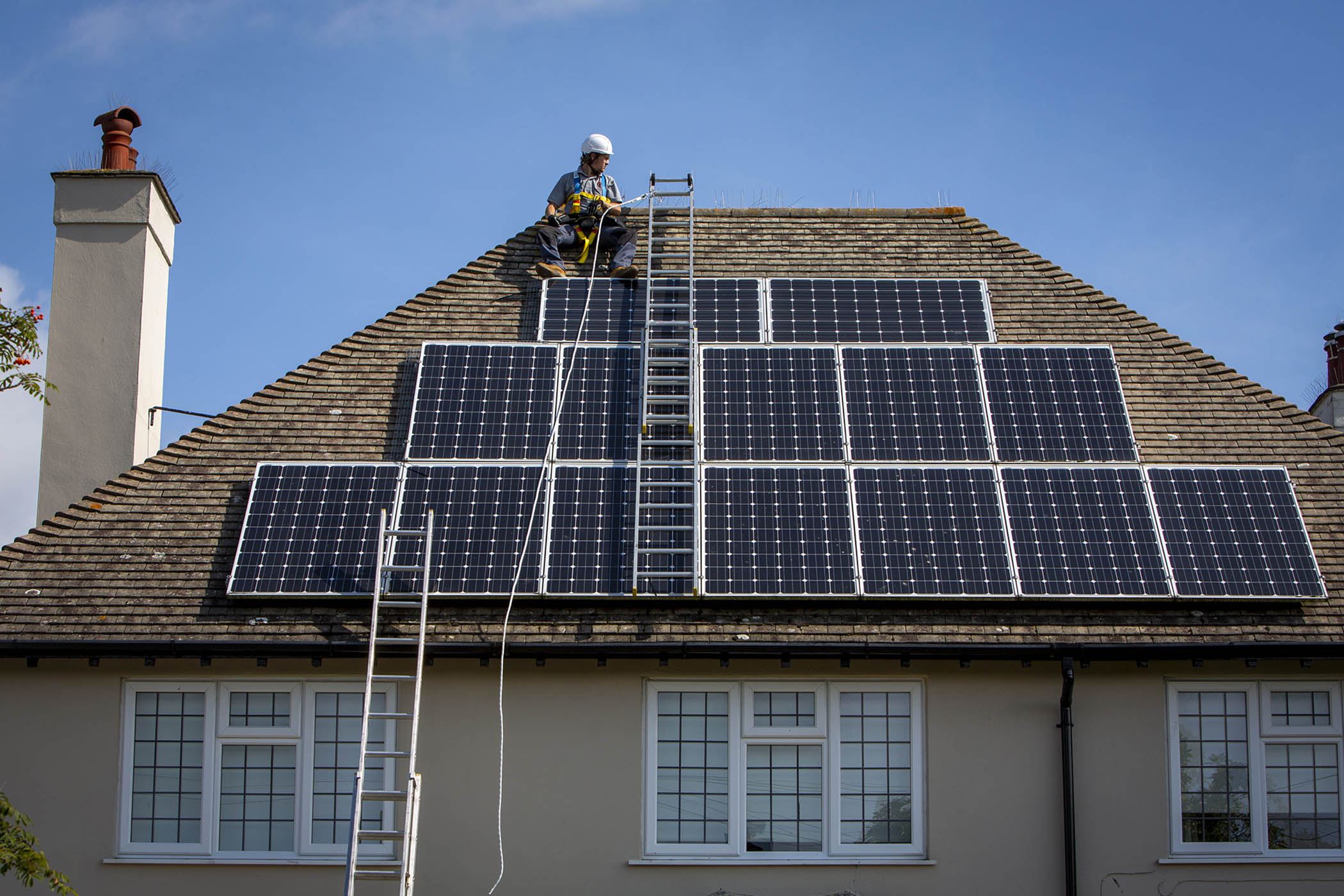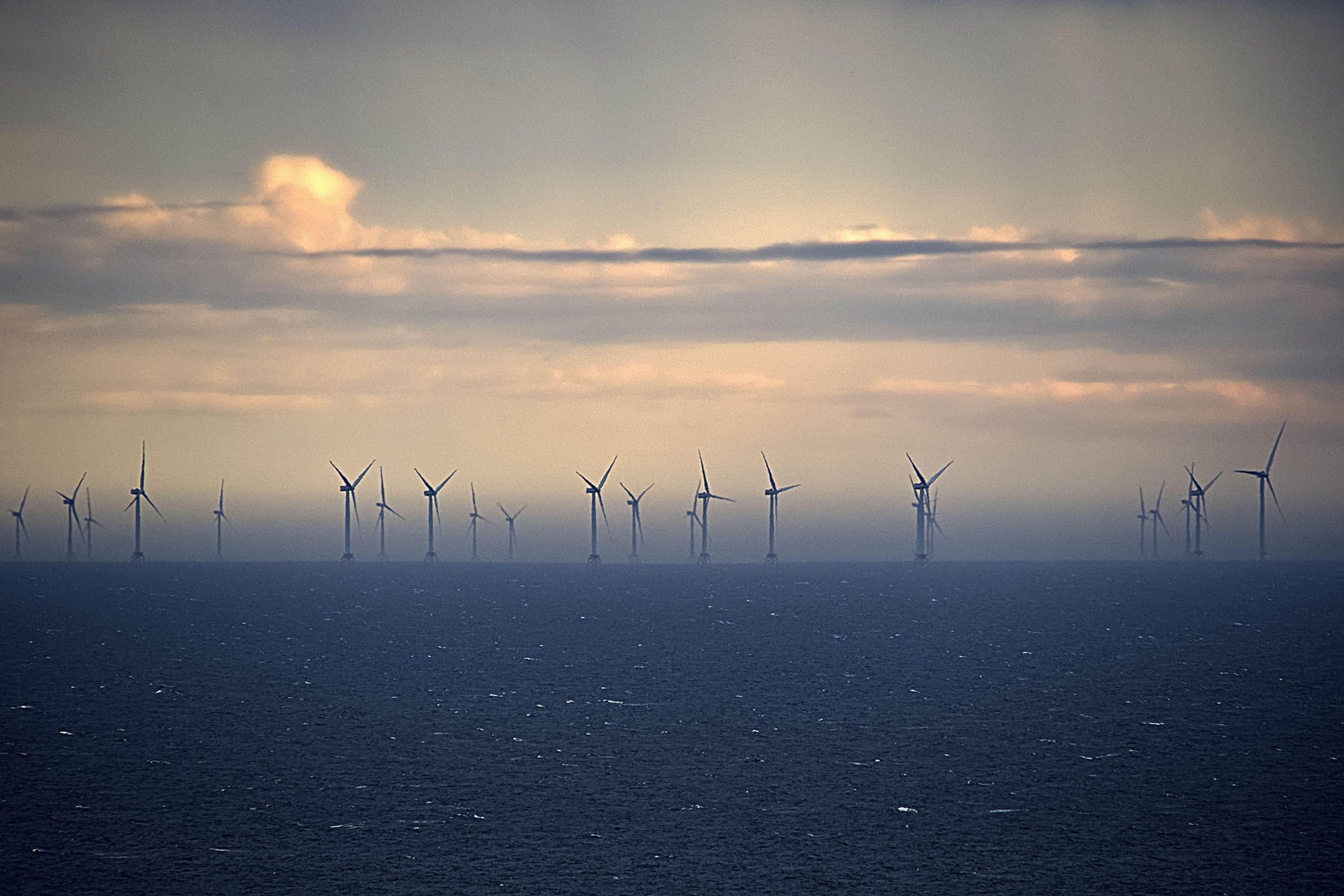When I took on the role as chair of Great British Energy in July 2024, I knew I would be doing so at a time when the comfort of policy consensus in energy was starting to fracture.
It has now become a major fault line, and at the frontline of a misinformation battle. It’s therefore incumbent upon me to take the case for renewable energy to the public to set the record straight about the challenges and opportunities.
GB Energy has been set up to help provide renewable, publicly-owned power to as many people as possible by 2030. The public is right to want cheaper bills, British jobs and energy independence. Getting to this will require an all-system, all-energy approach.
Renewable power and cheaper bills are not mutually exclusive. And I want to explain why it is important that the energy industry and civil society push back on forces that would seek the easy “maybe later” options. We’ve become far too good at delaying critically needed infrastructure decisions for decades. This is not a time to make the same mistake.
To put it bluntly, transforming our energy system is a major overhaul. The system was built decades ago for a different world – a world powered by coal, with a handful of large power stations dominating Britain.
This system needed overhauling anyway, so while we are at it, we might as well design it for the future, to support multiple, distributed sources of clean generation – from offshore wind to rooftop solar – all feeding into a grid that is being transformed. Sadly, we aren’t quite there yet, which has led to inefficiencies like £1bn a year in curtailment costs because clean electricity can’t get to where it’s needed or be absorbed by the grid.
Critics are right to say this is expensive. However, what they don’t say is that this is precisely why we need a national effort to rewire Britain’s grid faster – to enable the advantage created by this new, smarter, and more decentralised energy system.
In this future system, every household, factory, and cluster of industrial sites can act as a small power station – generating, storing, and sharing clean energy locally. With solar, batteries, and automated energy control, homes could see bills fall by as much as 90%, and energy use drop by up to 40%.
Related articles:
Across the economy, the electrification of everything is already saving around £2bn a year and could reach an astonishing £33bn annually by 2050. The truth is that a renewable, electrified energy system is significantly more efficient, and none of this is possible under a centralised fossil fuel model. Every delay in the energy transition pushes those savings further into the future.
Meanwhile, others are powering ahead. China connected more than 230 GW of new solar capacity in 2023 alone – more than the entire installed capacity of the US – and is building 50,000km of ultra-high-voltage transmission lines to move that clean power across the country. That’s the scale of ambition we’re competing with.
Newsletters
Choose the newsletters you want to receive
View more
For information about how The Observer protects your data, read our Privacy Policy
Some argue that gas remains cheaper. It’s true that prices have fallen from the crisis peak – but they’re still 75% higher than before the war in Ukraine. At the height of that crisis, the UK spent £100bn subsidising household bills as prices spiked 400%. Imagine if we had invested this in our energy system instead. We wouldn't even be having this debate.
Even today, solar and onshore wind deliver cheaper wholesale power than gas. Offshore wind costs have risen from below £40/MWh to around £100/MWh due to global supply chain shocks – yet they remain highly competitive. And what we don’t hear is that even if we were to build more gas-fired power stations, their costs would have gone up significantly, too – three times in fact, according to SSE.
Slowing down the energy transition doesn’t just raise costs and volatility – it also undermines jobs. Britain’s green economy already supports 273,000 jobs, with 400,000 more expected in the next five years.
That’s why GB Energy will strengthen domestic supply chains too. The UK has the potential to be a clean energy superpower, but we must act now to secure our share of a global market that’s expected to grow from $1.5tn in 2024 to nearly $4.9tn by 2033.
Britain led the world into the industrial age with coal and steel. We can lead it again – this time with clean energy
Britain led the world into the industrial age with coal and steel. We can lead it again – this time with clean energy
The Clean Power 2030 target – delivering 43 GW of offshore wind by 2030, equivalent to a turbine a day – is central to that effort. It will require 60,000 additional roles, 65% of which are at NVQ5+ skill levels already present in our workforce. This is a national re-industrialisation opportunity as well as a cheap and clean power opportunity.
Rewiring Britain is about more than cables and pylons. It is about building a fairer, more resilient economy – one powered by British innovation, skills, and clean energy. It means freeing ourselves from the price shocks of imported gas, lowering bills permanently, and creating new industrial strength across every region of the country.
Britain has done this before. We led the world into the industrial age with coal and steel. We can lead it again – this time with clean power and engineering excellence. The task ahead is immense, but so is the opportunity. The time for “maybe later” has passed. The future will be built by those who build now.
Juergen Maier is the chair of Great British Energy and was chief executive of Siemens UK from 2014 to 2019
Photograph by Andrew Aitchison / In Pictures via Getty Images


